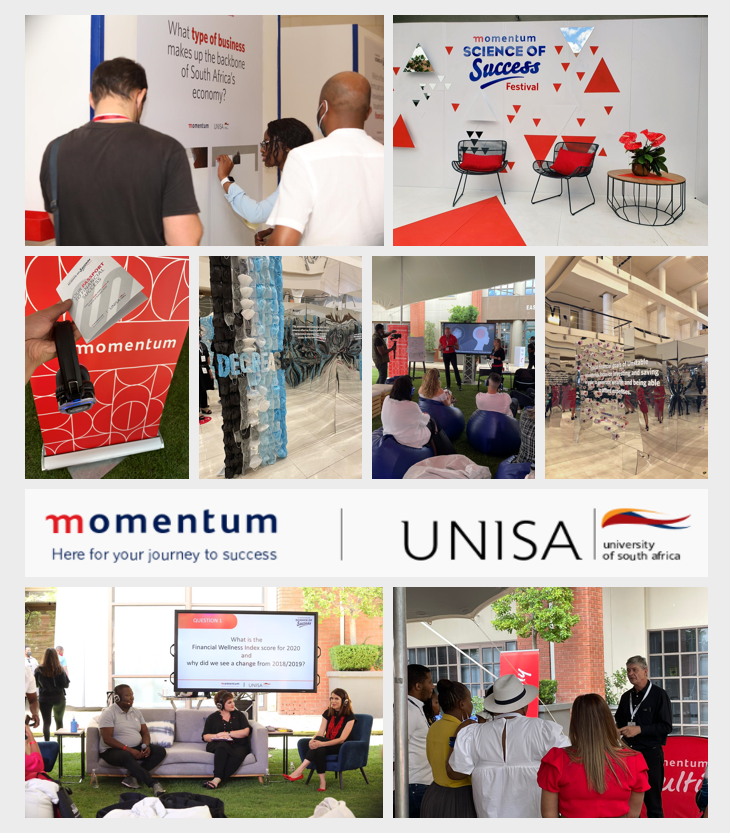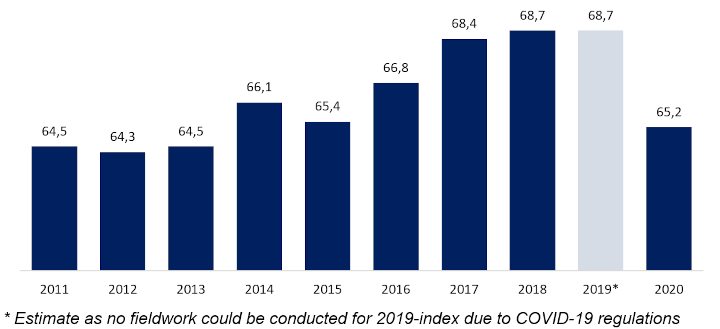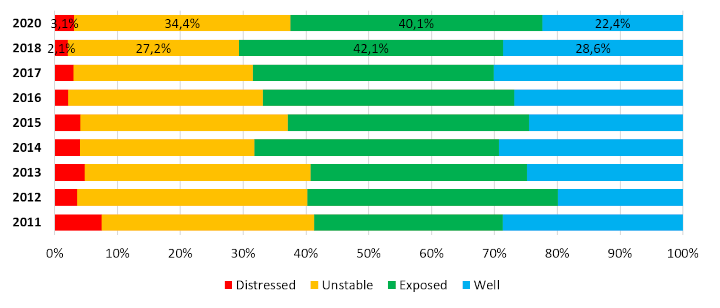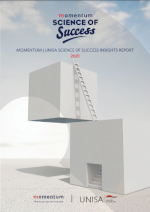
Over the past 10 years, the Momentum/Unisa Household Financial Wellness Index has given South Africans practical tips from experts to empower them to get serious about their finances and gain momentum towards achieving their financial goals. Over the years, the research findings have helped South Africans understand behaviour when it comes to financial matters and the formula to achieve financial success in their household finances.
This year, Momentum and Unisa aimed to provide South Africans with the ‘discernment advantage’ – the clarity that gives them the freedom to make the right financial choices and enhance their financial brain power with the third annual Science of Success festival. A hybrid event was held on 24 November 2021, inviting key stakeholders and influencers to attend a physical event, and streaming the event on social media platforms to share the insights with the general public.
Insights were drawn from the latest Momentum-Unisa Household Financial Wellness Index. The festival unpacked the report in bite-size pieces to highlight how certain behaviours can accelerate or decelerate one's journey to financial success. Guests interacted with experts to sharpen their financial skills and behaviours through education stations across the festival.

Based on results from the Momentum/Unisa Household Financial Wellness Index (depicted in figure 1), South African households’ overall Financial Wellness score recorded a steep decline from 68.7 points in 2018 to 65.2 points out of 100 (where ‘100’ is indicative of total household financial wellness) in 2020. The results are based on a nationally representative sample of 2 868 households that were interviewed during early 2021.
Figure 1: The Momentum/Unisa Household Financial Wellness Index over time

The decline in the overall Financial Wellness score was mainly caused by the unfavourable impact of COVID-19 and the resulting lockdowns on the economic (macro), community (meso), and consumer (micro) environments:
The Momentum/Unisa Household Financial Wellness Index comprises of five components/capitals, which are resources that determine households’ state of financial wellness. Table 1 shows the movement in the five components compared to those of the previous survey. When considering these components, larger adverse impacts were recorded for households' income and personal empowerment levels opposed to their wealth, living conditions and education components during 2020.
Table 1: Household Financial Wellness Index component scores generally worse during 2020

The Index research further indicated a general downward shift away from households being Financially Well to the lower Financially Unwell groups in 2020. Compared to 2018 a smaller share of households was financially well in 2020, declining from 28.6% to only 22.4%.
Distributional results of financial wellness groups 2011- 2020

What the research also revealed, is that the path to financial wellness is enabled by achieving financial success. Financial success is intrinsically linked to setting financial goals and actively working towards achieving them.
 About 45% of households indicated they don’t have financial goals. Households that do have one or more financial goals indicated a clear preference for some specific goals. The most popular financial goal among households is to generate wealth through long-term investments. But, preferring a financial goal does not mean households were successful in achieving them. Only 17.4% of households indicated they have one or more financial goal and that they were on track to achieve all their financial goals.
About 45% of households indicated they don’t have financial goals. Households that do have one or more financial goals indicated a clear preference for some specific goals. The most popular financial goal among households is to generate wealth through long-term investments. But, preferring a financial goal does not mean households were successful in achieving them. Only 17.4% of households indicated they have one or more financial goal and that they were on track to achieve all their financial goals.
The report further provides insights to the financial wellness of households where women and youth were the respondent as the financially knowledgeable person (a person that can provide detailed information on financial aspects of the household).
Click here to download the full report and visit
https://www.momentum.co.za/momentum/campaigns/general/science-of-success-2021 for more information.
* Compiled by Jacolize Meiring (Bureau of Market Research), Prof. Carel van Aardt (Bureau of Market Research), Prof. Bernadene de Clercq (Unisa College of Accounting Sciences), Arthur Risenga (Bureau of Market Research) and Jacolize Poalses (Bureau of Market Research).
Publish date: 2021-12-07 00:00:00.0